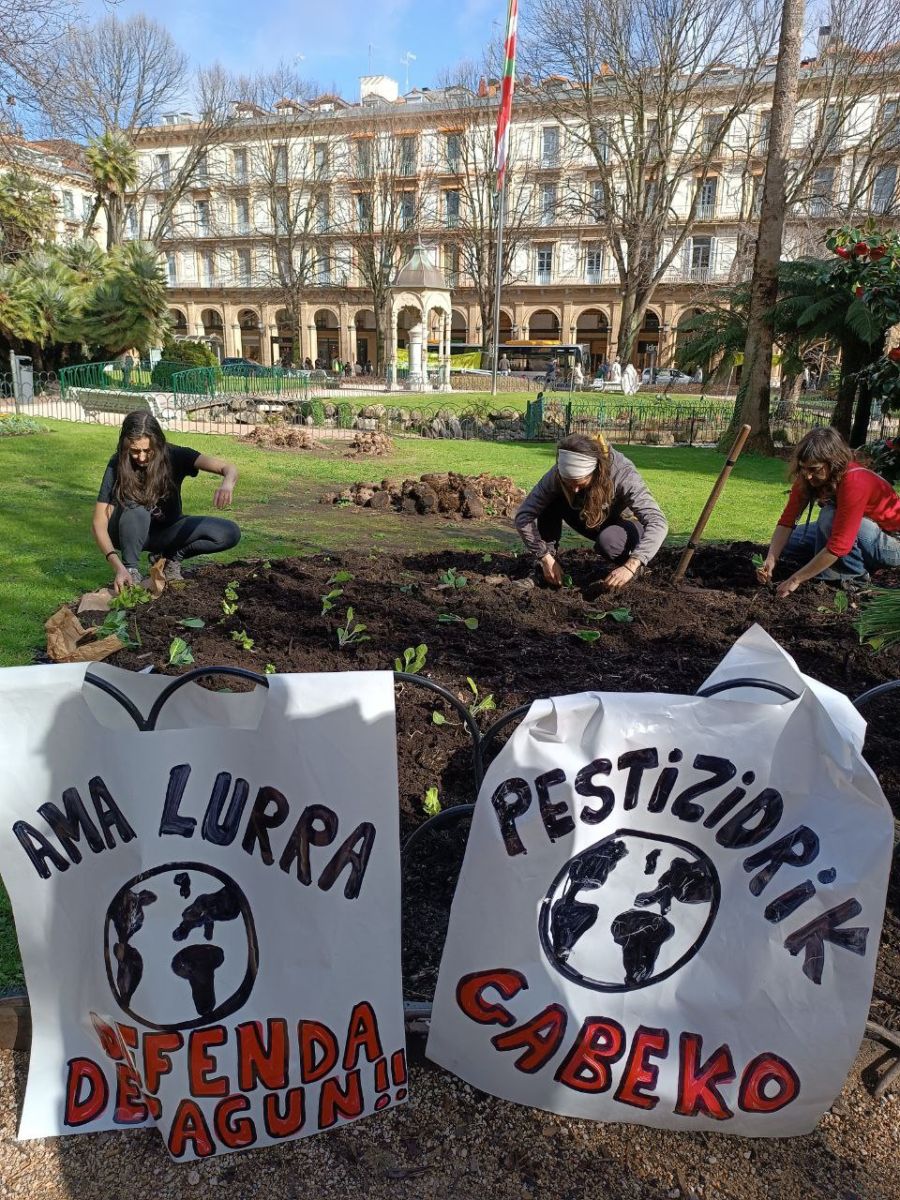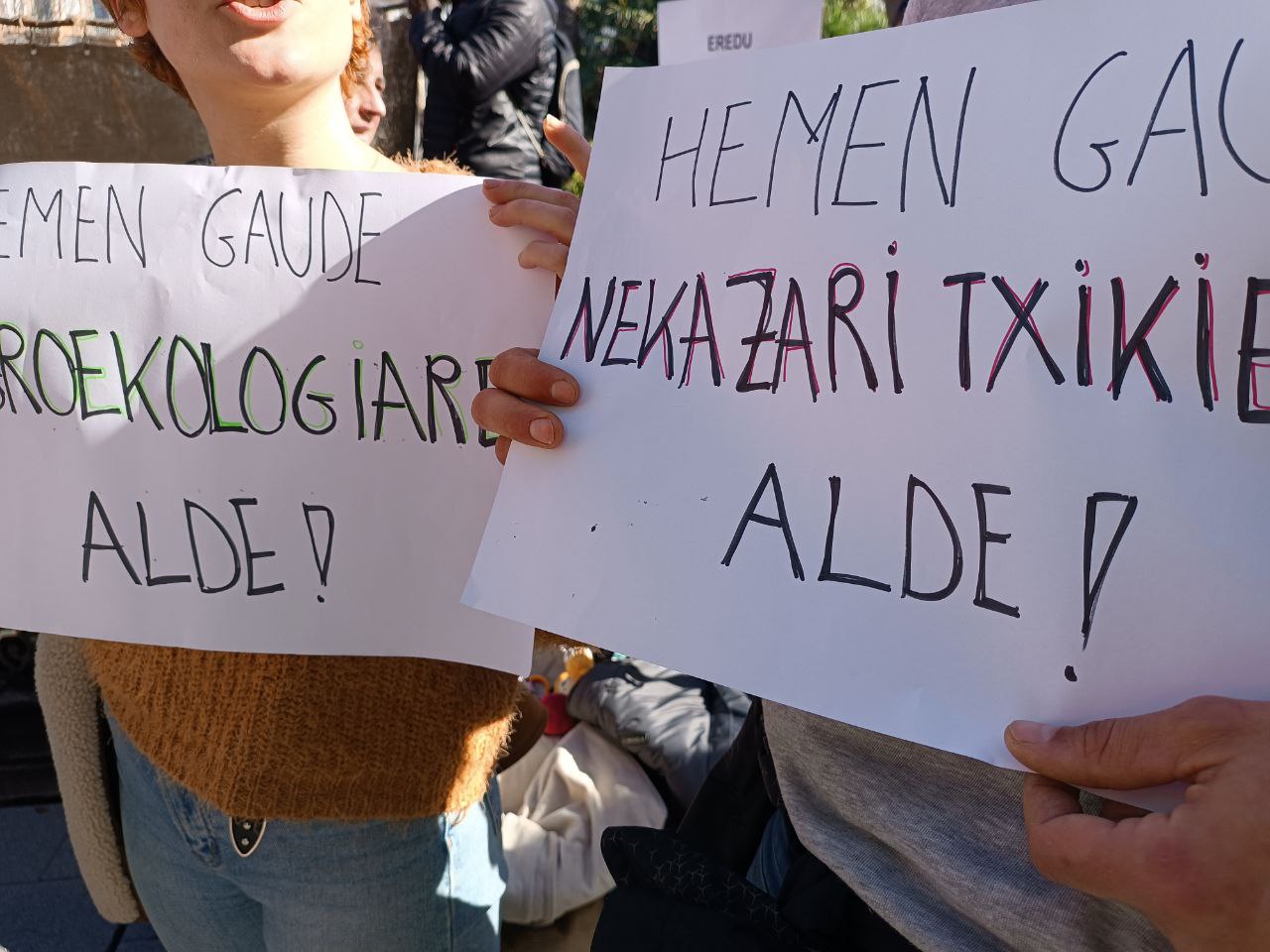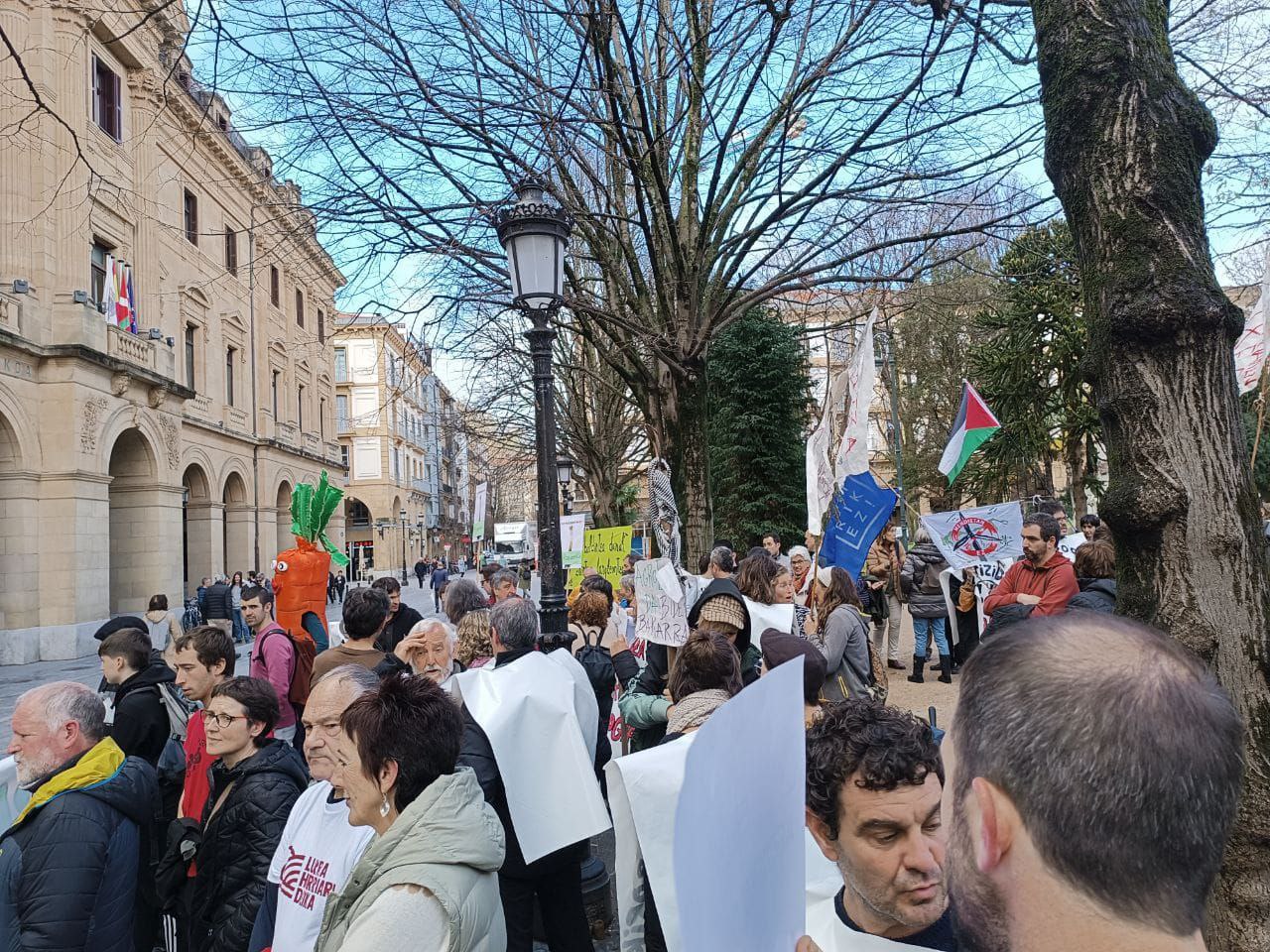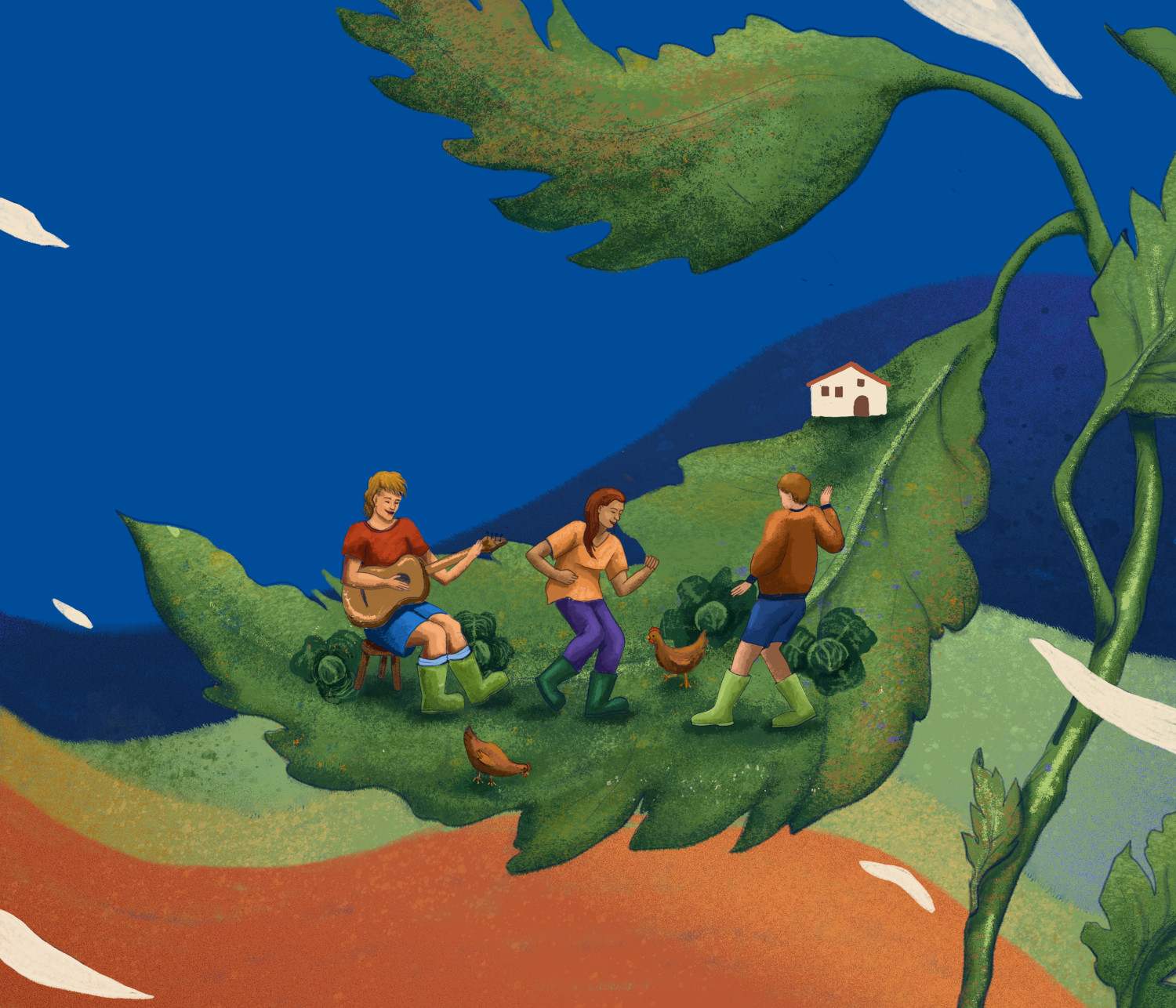Wood and Candle call on institutions to promote the agroecological transition of cultivation
- On 16 February at noon, agroecological farmers protest to the Provincial Council of Gipuzkoa. They have distinguished themselves from the mobilisations made by tractors in recent weeks: "The neoliberal agricultural model has clashed against its borders and the agricultural employers and their unions are mobilising across Europe to save the last havoc before the final disaster occurs." They have claimed that "the agroecological model has been the one that has best endured the crises of capitalism" and have criticized "the nearby institutions": "They are the pillars of the industrial agricultural model." They call for a "radical" change in the cultivation model, which is the "agroecological transition".

The mobilization has been called by peasant action Maderas and Kandela, supported by the following agents: Biolur, Biziola, EHKO, Erein has eaten and Azataporrua. They have concentrated on the Council of Gipuzkoa and several members have planted an orchard in Gipuzkoa Square.
Why is there cultivation in crisis?
The agro-industrial model attacks the material bases that make its existence possible: the environment and the people living there. And, moreover, recently it has to deal more clearly with the sleeves it has aggravated." Among the variables of the crisis are the "free trade treaties that are at the base of the neoliberal economy, which promote free competition between peasants and peasants around the world"; on the other hand, the model based on fossil fuels and the increase in fuels, synthetic fertilizers and phytosanitary, as well as the realization of a "ruthless imperialism" to maintain low prices, for example in Ukraine, in Gaza, in Gaza, in
as if it were inexhaustible, whatever its use"; the oligopoly of large supermarkets and food distribution; and the direct impact of the climate emergency.

"The agroecological model has been the one that has best endured the crises of capitalism"
They have pointed out that in the face of this "absurd" model, agro-ecology has been the one that has best endured the crises of capitalism and that it continues to provide solutions to the ecological disaster that it has never promoted". Remember their benefits. "Keeping rural projects that offer families decent work and quality food to the community, generates short circuits that promote local consumption, network in consumption groups of small producers or in cooperatives, strengthens village baserritars fairs, recovers and retains cultivated biodiversity and native breeds. It makes farming and agriculture a reality that respects life and the environment."

Criticism of organizations
They recall that they have been criticising the common agricultural policy for years, "but not for its strict environmental measures, but for the tibidity it shows. It is also for promoting agriculture for export and for being a dumping tool for farmers in non-Western countries. Or by the promotion of the capital of the large landowners and by the deposition of remains for the rest".
They have also criticised the agricultural policies of the "nearby institutions": "They are the pillars of the industrial model to the same extent that they underestimate our proposals. They choke us with their bureaucratic demands. When they drive the synthetic food industry or spend public money on agricultural mega-projects, they leave family farming. The new Energy Transition Act will open up the avenues of exploitation of our forests to multinationals and investment funds. These companies will absorb the scarce agricultural and livestock plots remaining in several counties and the lives of small towns will be exhausted".

They therefore request: "Agroecological transition that radically changes agricultural models. Regularisation of food prices, extinction of free trade agreements and prohibition of synthetic foods. We want to alleviate bureaucratic obligations. Ensure generational relief. Healthy eating is a social right. In short, we want to continue our work before it's too late."












